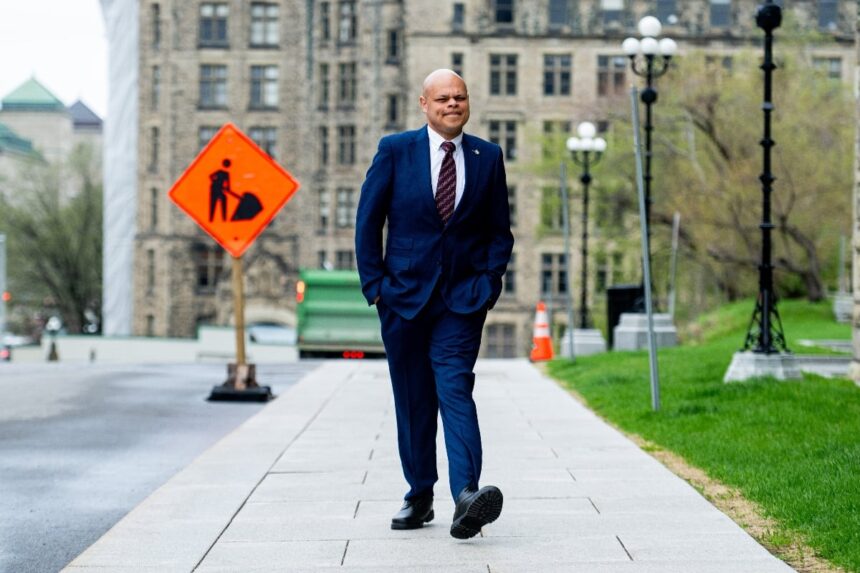In a bold legislative maneuver that has sent ripples through both Canada’s business community and immigration advocates, Conservative MP Richard Harrison introduced a private member’s bill yesterday aimed at phasing out the country’s long-standing Temporary Foreign Worker Program (TFWP) within three years.
“The program has evolved far beyond its original intent,” Harrison declared during a packed press conference on Parliament Hill. “What began as a targeted solution for genuine labor shortages has morphed into a system that suppresses wages for Canadian workers while creating a vulnerable underclass of temporary laborers with limited rights.”
The TFWP, established in 1973, allows Canadian employers to hire foreign nationals to fill temporary labor shortages when qualified Canadian citizens or permanent residents are unavailable. The program has grown substantially over the past decade, with over 90,000 work permits issued annually in recent years according to Immigration, Refugees and Citizenship Canada.
Harrison’s bill, titled the “Canadian Workers First Act,” proposes an immediate freeze on new TFWP applications followed by a phased reduction over 36 months. The legislation would reallocate resources toward skills training programs for Canadian workers and create incentives for businesses to invest in automation and productivity improvements.
The proposal has drawn sharp criticism from industry groups, particularly those representing sectors heavily reliant on the program such as agriculture, food processing, and hospitality. The Canadian Federation of Agriculture estimates that eliminating the program could leave up to 60,000 positions unfilled in the agricultural sector alone.
“This is not about immigration—it’s about basic labor economics,” Harrison told CO24 Politics. “When businesses can easily import temporary workers willing to accept lower wages, there’s little incentive to improve working conditions or invest in training Canadians.”
Labor economists remain divided on the bill’s potential impact. Dr. Elise Chen, labor market specialist at the University of Toronto, told CO24 Business that “while there’s legitimate concern about wage suppression in certain sectors, a complete elimination rather than reform could create severe disruptions in industries where genuine skills gaps exist.”
Immigration advocates have raised humanitarian concerns about the proposed legislation. The Migrant Workers Alliance for Change argues that rather than eliminating pathways for foreign workers, the government should focus on providing them with stronger protections and clearer paths to permanent residency.
Prime Minister Justin Trudeau’s Liberal government has signaled its opposition to the bill, with Employment Minister Carla Qualtrough stating that “targeted reforms rather than wholesale elimination” would better serve Canada’s economic needs. However, with growing support among both Conservative and NDP members concerned about labor market impacts, the bill’s prospects remain uncertain.
As Parliament prepares to debate this contentious proposal in the coming weeks, the fundamental question facing lawmakers transcends partisan lines: Can Canada create an immigration system that addresses genuine labor needs while ensuring fair treatment for both domestic and foreign workers in an increasingly globalized economy?










